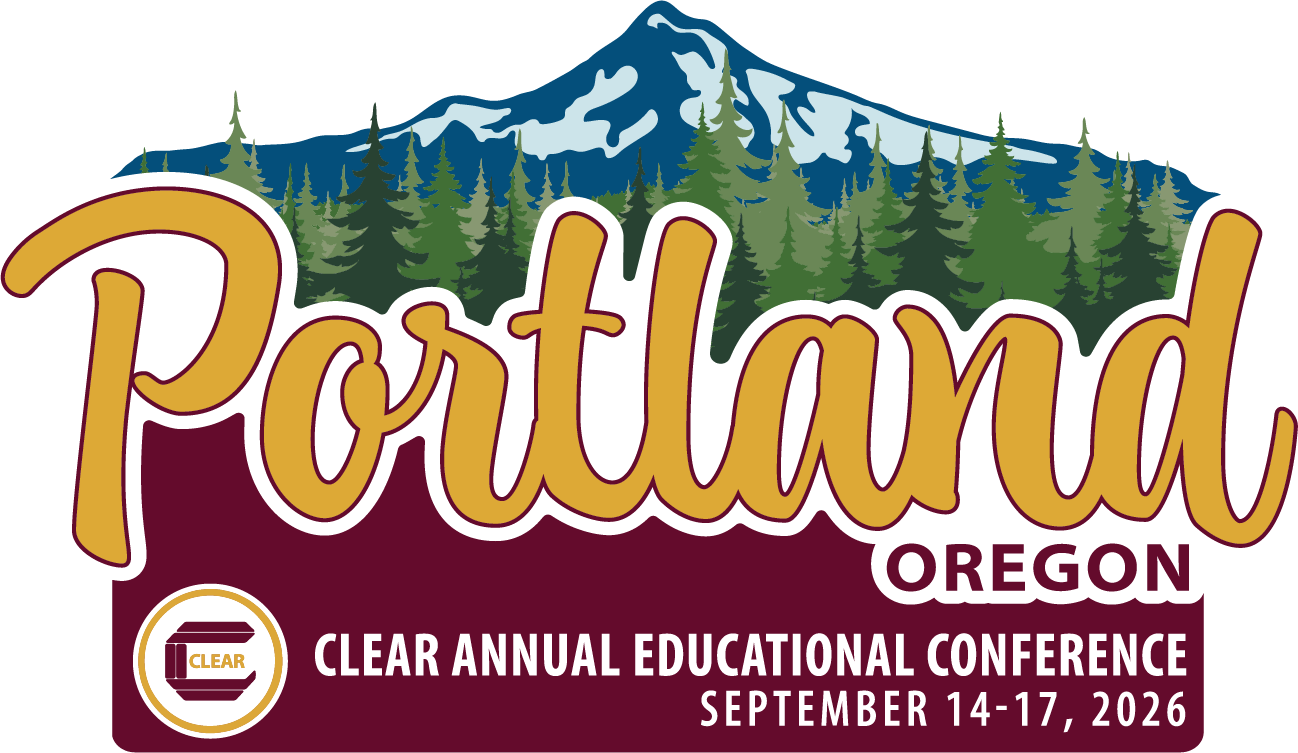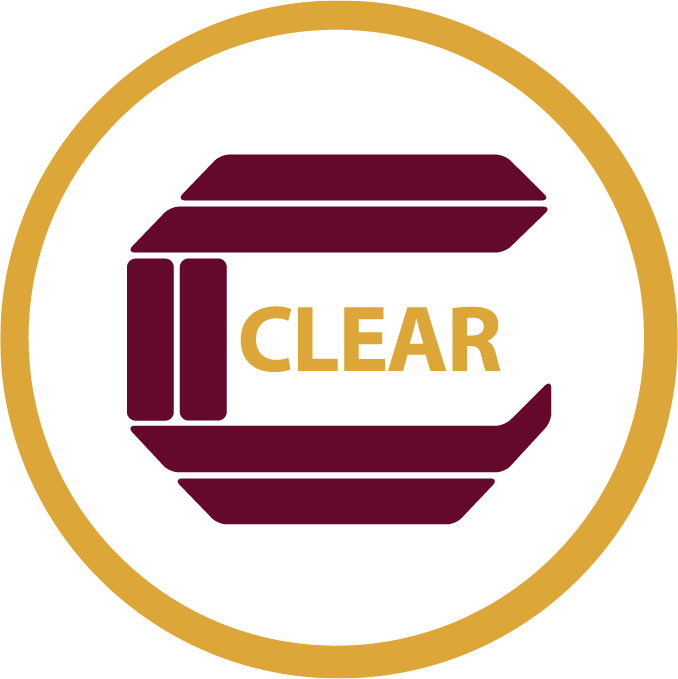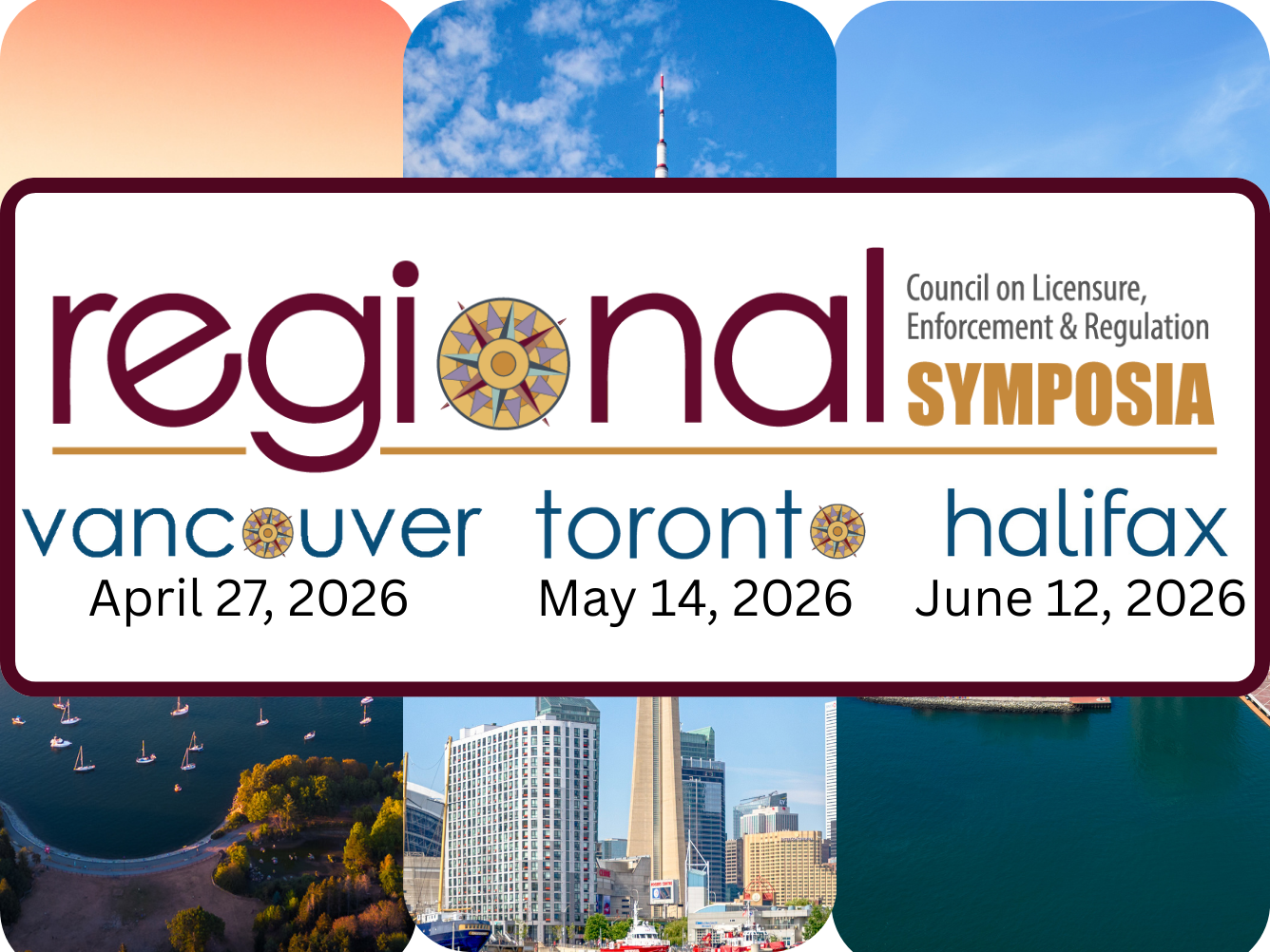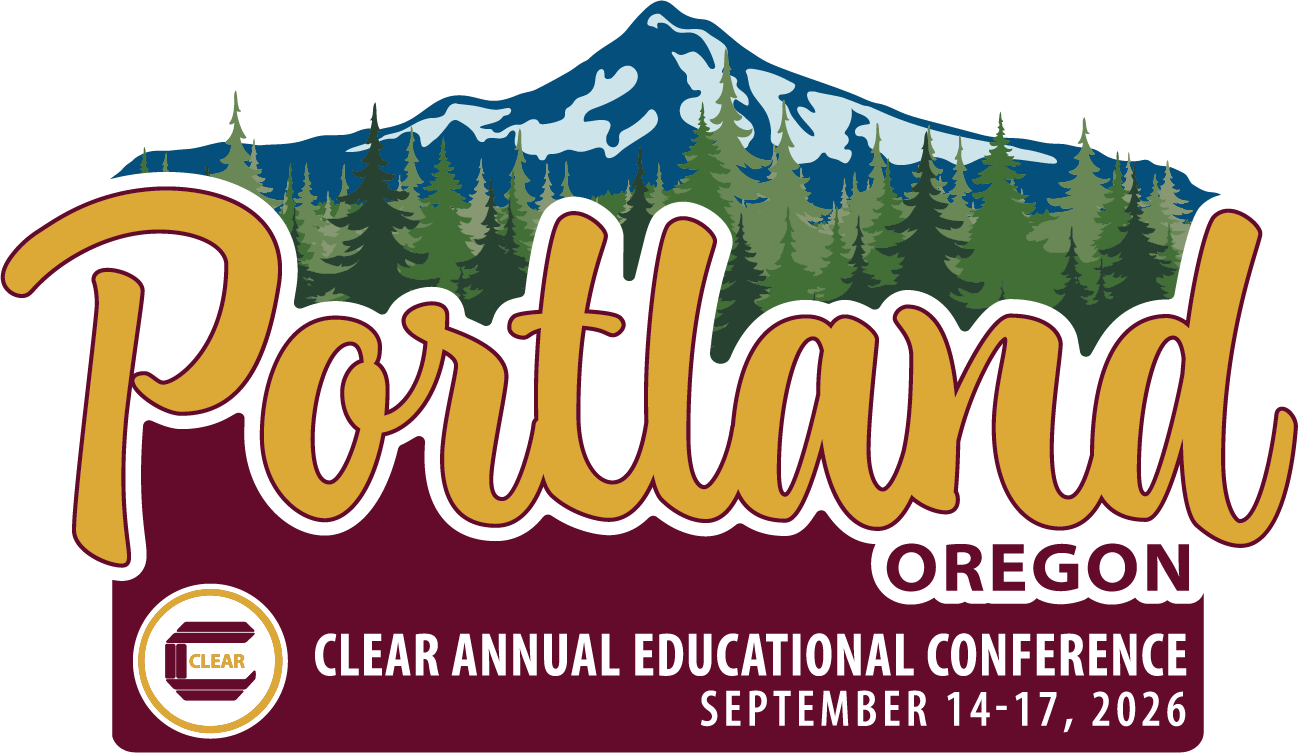Call for Proposals
2026 Annual Educational Conference
Call for Proposals CLOSED!
2026 Annual Educational Conference

CLEAR is pleased to announce the Call for Proposals for the 2026 Annual Educational Conference. Regulatory stakeholders from around the world are encouraged to submit proposals for presentations, panel or roundtable discussions, workshops, and posters for consideration for the 2026 conference program. Please review the information below before submitting your proposal.
The proposal window will be open through November 21, 2025. DEADLINE EXTENDED: November 30.
Acceptance notifications will go out no later than February 27, 2026.
Before You Get Started
Proposed sessions may be in the form of presentations, panels, workshops, roundtable discussions, or posters. All proposals must be submitted via the online submission portal (Pheedloop).
Frequently Asked Questions
Proposal Process FAQs (click to view or download)
Topics
CLEAR always seeks a wide selection of topics from diverse jurisdictions and both health and non-health professions and occupations. We encourage proposals that present information applicable to a variety of stakeholders. Each year the Annual Conference Program Committee identifies topics most relevant to the regulatory community based on program evaluations and environmental scans:
- Leveraging AI and emerging technologies in credentialing, assessment, and investigations
- Mitigating risks: cybersecurity, misinformation, and fraud prevention in regulatory contexts
- Legislative modernization and adapting to rapidly evolving practice scopes and roles
- Ethical implementation of innovation in regulation (equity, transparency, accountability)
- Building trust through transparent governance, public engagement, and accountability
- Strengthening foundational regulatory systems and workforce capacity in resource-constrained environments
- Measuring regulatory performance: frameworks, metrics, and storytelling
- Clarity in board and staff roles, leadership development, and supporting effective self-regulation
- Navigating difficult conversations in regulation, including addressing political pressures and maintaining regulatory independence
- Understanding and applying the hierarchy of statutes, regulations, and policies in decision-making
- Alternative pathways and novel approaches to foreign credential recognition
- Ensuring fairness, transparency, and cultural responsiveness in credentialing systems
- Regulatory alignment and collaboration to support interjurisdictional mobility
- Supporting the success of internationally educated professionals throughout the licensure process
- Applying trauma-informed, inclusive, and culturally safe regulatory approaches
- Supporting licensee and regulator well-being, and mitigating burnout and moral distress
- Reducing barriers to licensure (reducing fees, reviewing laws related to criminal records, eliminating Citizenship or SSN requirements)
- Engaging compassionately with marginalized or at-risk practitioner populations
- Balancing public protection and fairness through restorative and relational approaches to discipline
- Evolving continuing competence models: relevance, risk, and reflection
- Innovations in assessment, including longitudinal and performance-based tools
- Embedding equity and accessibility into QA processes, including accommodations and remediation
- Linking QA systems to public protection outcomes and system trustworthiness
Formats
Proposals may be submitted as one of five formats:
Presentation/Lecture: Sessions wherein material is presented by one or more speakers.
Moderated Panel Discussion: A moderator leads two or more panelists in a guided discussion before opening up to questions from the audience.
Facilitated Roundtable Discussions: Where attendees are expected to discuss among themselves for all or most of the session time.
Workshop: Session includes hands-on approaches and/or various activities for attendees.
Poster: Material will be presented via poster (authors will have the opportunity to interact with attendees during a scheduled "Poster Session").
Tracks
CLEAR's Annual Educational Conference is organized along four tracks of inquiry. Click the boxes below to learn more about each track.
Sessions that inform, educate, and inspire conference attendees to implement innovative solutions regarding legislation, policy, administrative leadership, and daily operations. Sessions that focus on operational efficiency, diversity, equity, inclusion, technology, cyber and physical security, updates to laws, governing policies and procedures, and media and stakeholder relations are in high demand. |
Sessions that educate in the professional discipline process and enhance knowledge and skills for better on-the-job performance by participants in the professional discipline process. The professional discipline process includes the entire process by which the state/province/government entity (1) receives information pertaining to possible violations of law by a member of a regulated group (or a person who purports to be a member of a regulated group), (2) investigates the information received, and (3) makes an appropriate case disposition. |
Sessions that allow those involved in both the initial licensure/ registration / credentialing process and the continuing competence and professional development area to discuss the issues, trends, and challenges they face outside of the testing and examination realm. Topics may include defining competencies within a scope of practice, setting non-discriminitory standards of qualification (education, training, experience), implementing quality assurance mechanisms, establishing equivalencies, assessing practical experience, accrediting education providers, exploring artificial barriers to practice, labor mobility (national and international), appeals processes, when should the bar be raised or lowered, re-entry to practice scenarios, etc. |
Sessions designed to inform, provoke discussion, and explore new topics related to all aspects of certification and licensing examinations. These topics may include such items as: job analysis, test development and validation, standard setting, test administration, scoring and analysis, score reporting, and examination challenges/defense. |
Definitions
Coordinator: Person who submits the proposal; makes revisions per the program committee/subcommittee recommendations; coordinates session speaker(s)/presenter(s) and moderator or poster authors. A coordinator may also be a speaker or a moderator, but not both. (Coordinator Responsibilities)
Speaker/Presenter: Person who presents the materials at the conference. Speakers may be coordinators but should not fulfill the role of moderator for their session.
Moderator: Person who introduces the session and speaker(s) and facilitates the session. A moderator can be coordinator but not a speaker. (Moderator Responsibilities)
Poster Author: Person who contributes to the development of a conference poster. Not all poster authors are required to attend the conference, however at least one author is recommended to answer questions from attendees during the scheduled "Poster Session".
Submitting Your Proposal
Please be sure to have the following information ready to submit:
-
- Contact information for Coordinator, Speaker/Author(s), and Moderator
- Please note if you do not have all speakers identified, you are still able to submit a proposal.
- Please note if you do not have all speakers identified, you are still able to submit a proposal.
- Proposed Session Title
- Track
- Proposal Description (no more than 500 words). Please include the following components:
- Include major themes, challenges, lessons learned and general applicability for other regulatory bodies. Successful proposals demonstrate:
- Evidence-Based Approaches (relevant research and data that demonstrates the quality of the content)
- Practicality (explain practices or resources that attendees will be able to take home and use – such as handouts, website links for further information or specific actionable strategies).
- Learning Outcomes & Innovations (new ideas or approaches attendees can expect to learn)
- International applicability (content is broad in scope with international elements that fit diverse occupations and needs).
- We recommend reviewing the FAQs provided above for additional information about developing a successful proposal.
- Include major themes, challenges, lessons learned and general applicability for other regulatory bodies. Successful proposals demonstrate:
- A minimum of three learning objectives. Each objective should be measurable.
- Session format & preferred length of session
- NOTE: The proposal portal allows you to save progress and edit your proposal up to the submission deadline.
- Contact information for Coordinator, Speaker/Author(s), and Moderator
Note on Format for the 2026 Annual Educational Conference
Our Board of Directors has decided the 2026 conference will be offered as an in-person event only.


